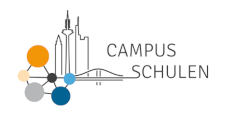Projects
Professionalization
To the project browser
DiSeGel
The interdisciplinary network focuses on emotional violence by educational professionals towards children and young people. The network members examine how emotional violence as a phenomenon can be understood theoretically and dealt with empirically.

Campusschulen Frankfurt und Umgebung
How can educational researchers, school practitioners and (initial) teacher training in Frankfurt and the surrounding area collaborate and benefit from each other with a long-term perspective? In the Campus Schools Programme, we are establishing strong and sustainable collaborations at the interface between theory and practice and develop them further together.

Ada*Q
The research project “Adaptivity and teaching quality in individualized lessons” (Ada*Q) is part of the Robert Bosch Foundation’s “How does a good school work? – Research for practice” programme. The project investigates how individualized teaching in elementary school is implemented and designed at the schools that have won the German School Award.

KoaLa
Das Projekt KoaLa ist Teil des bundesweiten Forschungsverbundes „Schule macht stark“ (SchuMaS). Es beschäftigt sich mit der Erforschung und Gestaltung kognitiv aktivierender und kollaborativer Lernangebote.

meRLe
The meRLe project explores ways to promote German reading skills using multilingual-sensitive reciprocal teaching in primary education.

InSe
This project investigates the extent to which tests and test items are capable of capturing effects of instruction.

PREDICT
This project evaluates the potential of predictions generated by students to improve their learning. Further, it investigates the mechanisms that determine its success and asks whether there are age-related differences in its effectiveness.

SLICES
The project SLICES examines, whether the thin slices technique can be used to efficiently study educational processes in very large samples, such as they are common in large scale assessments. The study focuses on the “constructive handling of student errors” in the classroom, an indicator of teaching and learning that is considered to be of particular importance for adaptive interactions with heterogeneous groups of learners.

LeA-Training
The focus of project LeA-Training is to investigate a reading fluency training program. The project aims at identifying the underlying mechanisms resulting in reading improvement to effectively implement the training for children with reading difficulties.

PHIactio
PHIactio characterizes the relation between the beliefs of pre-service teachers and the quality of teaching of given miniature lessons.